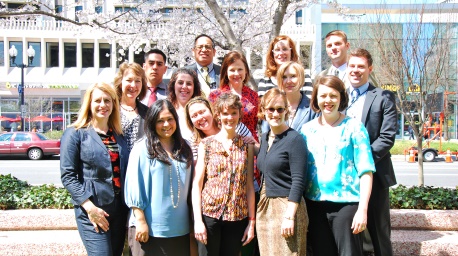SEVP deploys first class of field representatives to work with US schools hosting international students
WASHINGTON — Fifteen field representatives deployed to locations across the United States this week to serve as liaisons between U.S. schools and the Student and Exchange Visitor Program (SEVP). The program, housed within U.S. Immigration and Customs Enforcement's (ICE) Homeland Security Investigations (HSI), certifies schools to enroll international students and protects national security by overseeing those students for compliance with U.S. laws.
The field representatives will serve as a key resource for schools on the SEVP certification and recertification processes. They will train school officials on SEVP, helping them not only understand the program's rules and regulations, but also federal laws governing international students studying in the United States. The field representatives will also aid in protecting national security by improving the data integrity of the Student and Exchange Visitor System (SEVIS), an Internet-based system that houses information on international students and exchange visitors while they are in the United States
Before deploying to their respective territories, field representatives completed an eight-week training course in Washington, D.C., where they learned about federal laws and regulations and the school certification process. In addition to classroom instruction, the field representatives spent time at U.S. Customs and Border Protection (CBP), the U.S. Department of State and HSI's Counter Terrorism and Criminal Exploitation Unit to see how the various agencies units work together to vet international students studying in the United States.
Field representatives will manage territories in one of three regions – eastern, central and western. They will work with schools in the field four days a week and spend one day per week at their home office. Once fully staffed, each region will have 20 field representatives, for a nationwide total of 60. SEVP determined the size and location of the 60 territories based on the number of SEVP-certified schools clustered in a specific geographic area.
Once deployed, a field representative has 30 days to contact designated school officials in their territory. Field representatives are required to meet twice a year with each certified school in their territory with active international students. If a school is SEVP-certified, but does not have any current international students, the field representative will reach out to that school via an annual visit, phone call or email.
ICE's Student and Exchange Visitor Program (SEVP) monitors approximately one million international students pursuing academic or vocational studies (F and M visa holders) in the United States and their dependents. It also certifies schools and programs that enroll these students. The U.S. Department of State monitors exchange visitors (J visa holders) and their dependents, and oversees exchange visitor programs.
Both agencies use SEVIS, an Internet-based system, to protect national security by ensuring that students, visitors and schools comply with U.S. laws. SEVP also collects and shares SEVIS information with government partners, including CBP and U.S. Citizenship and Immigration Services, so only legitimate international students and exchange visitors gain entry into the United States.
HSI reviews potential SEVIS records for potential violations and refers cases with potential national security or public safety concerns to its field offices for further investigation. HSI has reviewed more than two million records since SEVIS was introduced in 2003. Additionally, SEVP's Analysis and Operations Center reviews student and school records for administrative compliance with federal regulations related to studying in the United States.
Interviews and b-roll can be accessed at www.dvidshub.net/unit/ICE.
Learn more about SEVP at www.ICE.gov/SEVP.


